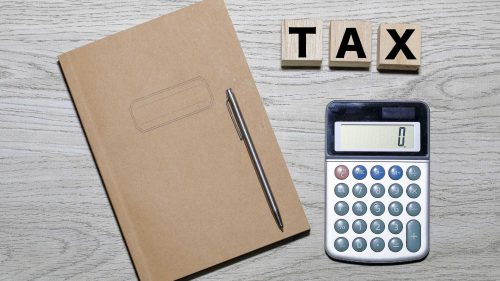The world of tax can seem scary and daunting, but once you have a good understanding of it, the problem will often seem much smaller and less of a mountain to climb. Whether you trade forex, crypto, or stocks and shares, understanding tax is vitally important.
Do You Need to Pay Tax on Online Investments?

In this article, we’ll look at what the laws are around paying tax on online investments in the UK, what you need to know about UK tax law in 2023, and what tips we have regarding online investment tax.
UK investment tax

The rules relating to tax in the UK are set by HM Revenue & Customs and are in place to ensure that everybody who is supposed to pay their taxes does so and pays the correct amount. This means that those who earn, regardless of how, have to pay some form of tax, and this includes online investors.
When it comes to tax, there are two key types that you need to be aware of if you want to stay on the correct side of the law: Capital Gains Tax and Income Tax. They might sound similar, but they’re actually quite different, and any online investor, whether a forex trader or stock investor, should understand how they differ.
Capital Gains Tax (CGT)

Capital Gains Tax is a tax that you pay on the profit that’s made when you sell an asset, such as an online investment or company share. It’s calculated using your income tax rate, and so if you land on the higher end of the scale, you’ll pay either 20% or 28% CGT on any profits over £12,570.
A footnote to this is that you’ll only have to pay 10% or 18% CGT if you’re on the lower rate. Most people will fall into this, but if you trade as a side hustle, this can become trickier to work out, showing why you might need to consult a tax advisor or accountant.
Income Tax
Income tax is easier to work out and is the most common form of taxation for individuals, paying tax on your income that comes from employment or investments. In relation to investments, you’ll pay a minimum of 7.5% Income Tax on the dividends of your investments if they earn you more than £12,570, though this can increase.
UK tax in 2023
The state of the UK tax world may be set to change now we’ve had another change in government, but as things presently stand, there shouldn’t be any further major changes to the current tax structure. That being said, Rishi Sunak is a free-market capitalist with a history in financial management and so it shouldn’t come as a huge surprise to see taxes rise in the UK.
Tax is a fast-moving world, and with the country going through a period of intense hardship and regressing growth, tax increases to fund spending elsewhere could yet be on the cards. This highlights just how important it is to either follow the news yourself or pay for an accountant.
Tips for online investment tax

Here are some tips to help you make sure you’re paying the right amount of tax on your online investments:
1. Make use of your annual exemption
When it comes to tax in the UK, you may be entitled to an exemption based on your overall income, though this will be dependent on whether or not your trading is a full-time role. Regardless, you won’t pay a penny of tax on the first £12,570 that you earn, regardless of whether it’s via PAYE or sole trader investments.
2. Consider tax-efficient investments
Some investments are better than others when it comes to the amount of tax you’ll end up paying, so being aware of other options is key. An Individual Savings Account, or ISA, is a great way to make money on interest without you having to pay capital gains tax on the interest that you gain.
3. Use losses to reduce your tax bill
When you make a loss on a business investment, you can use this to offset any potential gain that you might make in the future. Not only will this balance out your bank balance, but it’ll also reduce the final tax bill that you’ll pay on your profits.
4. Keep good records
Keeping good records of your online investments is important for two reasons: firstly, it will help you calculate your CGT bill correctly; and secondly, it will help HMRC if they need to investigate your tax affairs at a later date.
The best thing you can do to keep your tax bill low is to keep a good record of your trades, as this will help ensure that when it comes to filing your taxes, you don’t miss anything. This helps to ensure that if HMRC does come knocking, you won’t have any surprises in the form of investigations or fines.
A good way to do this is to keep a spreadsheet that details all of your trades, including the dates and what returns they generated. This will be helpful when it comes to filing your end-of-year balance, as well as what you need to be paying to HMRC when the new tax year rolls around. It pays to be organised.
5. Seek professional advice
Tax can be scary; there’s no doubt about that, and if it’s something that you don’t think you can handle on your own, it might be a good idea to enlist the help of a third party. Many full-time traders have accountants that specialise in investment taxation and can give you specialist advice and guidance.






